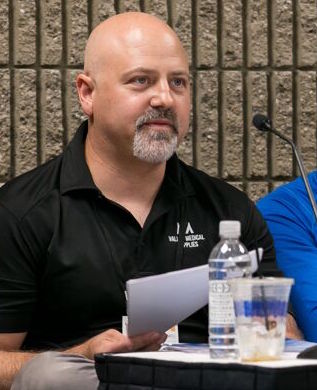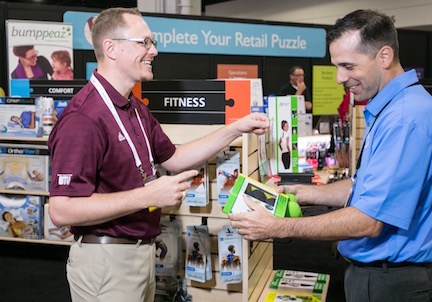PHOENIX – Three years of steady growth at Valley Medical Supplies, Phoenix, Arizona, is a testament to owner Tim Rutti’s willingness to try new products and techniques to find what works. Part of that trial and error philosophy has dealt with ways to properly incentivize sales people to maximize employee satisfaction and customer service.
 Rutti’s philosophy has evolved from no commissions to group commissions, with goals built in for the entire store. “If we achieve those goals, equal portions of that commission get paid out,” says Rutti, who has two Phoenix locations, one for rentals/repair and the other solely for retail.
Rutti’s philosophy has evolved from no commissions to group commissions, with goals built in for the entire store. “If we achieve those goals, equal portions of that commission get paid out,” says Rutti, who has two Phoenix locations, one for rentals/repair and the other solely for retail.
Why no individual commissions? For Rutti, it comes down to compassion and priorities. “The customer is already in shock,” he says. “They are often here due to disease, death, or incontinence. It would make them even more uncomfortable if we had sales reps hopping over the counter [seeking individual commissions] to race over to the person who is staring at a lift chair instead of approaching the one who needs a conversation about incontinence.”
Rutti insists that what’s best for the company is to close customers and increase the amount of items they bring to the register. If that means helping customers who need lower ticket items, so be it. “I set goals at the beginning of the month, and say, ‘This month, we are focusing on lift chairs; if we hit ten lift chairs for the store, everybody gets $50,’” he says. “If we sell 12, everybody gets $200. That drove the kind of behavior that I wanted.”
Rutti’s mantra is to make customers feel comfortable, and he is loath to try anything that could jeopardize that overall vibe. He acknowledges that employees talk about their sales, but so far he has been able to avoid a perception among sales people who may think they are pulling more weight than their colleagues. As long as that continues, Rutti is keen to continue the company’s “solid growth and stellar reputation.”
 As to the question of why more HME providers have not yet transitioned over to retail, Rutti attributes the hesitancy to an unwillingness to change.
As to the question of why more HME providers have not yet transitioned over to retail, Rutti attributes the hesitancy to an unwillingness to change.
“These companies have a vested interest in keeping their employees and keeping their contracts,” Rutti says. “To walk away from that or transition the business model does not make sense in many cases. They would have to fire people and get out of their industrial complexes that are not customer friendly—usually in air parks [near airports].
“Retail involves a lot of marketing, a more expensive lease, and you must always carry the high-end products with lots of inventory on hand,” Rutti adds. “Ultimately, that’s why so many HME providers have largely not crossed over into the retail world—at least not yet.”

